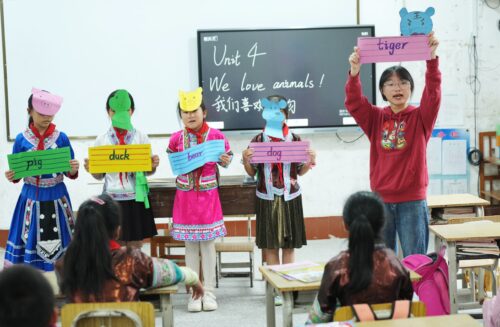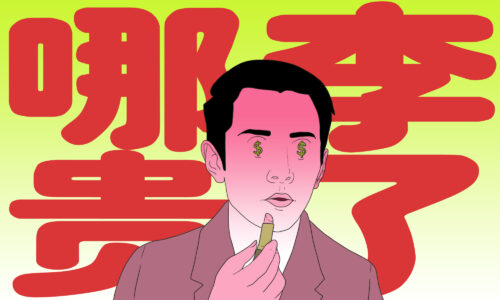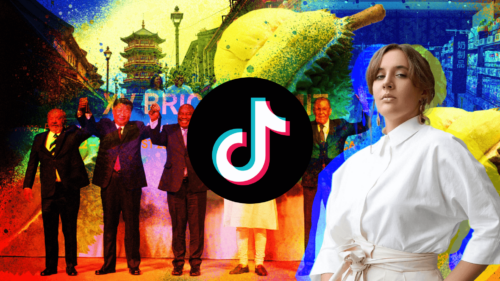China’s top internet buzzwords of 2022
25 hot online words, phrases, and memes from this year
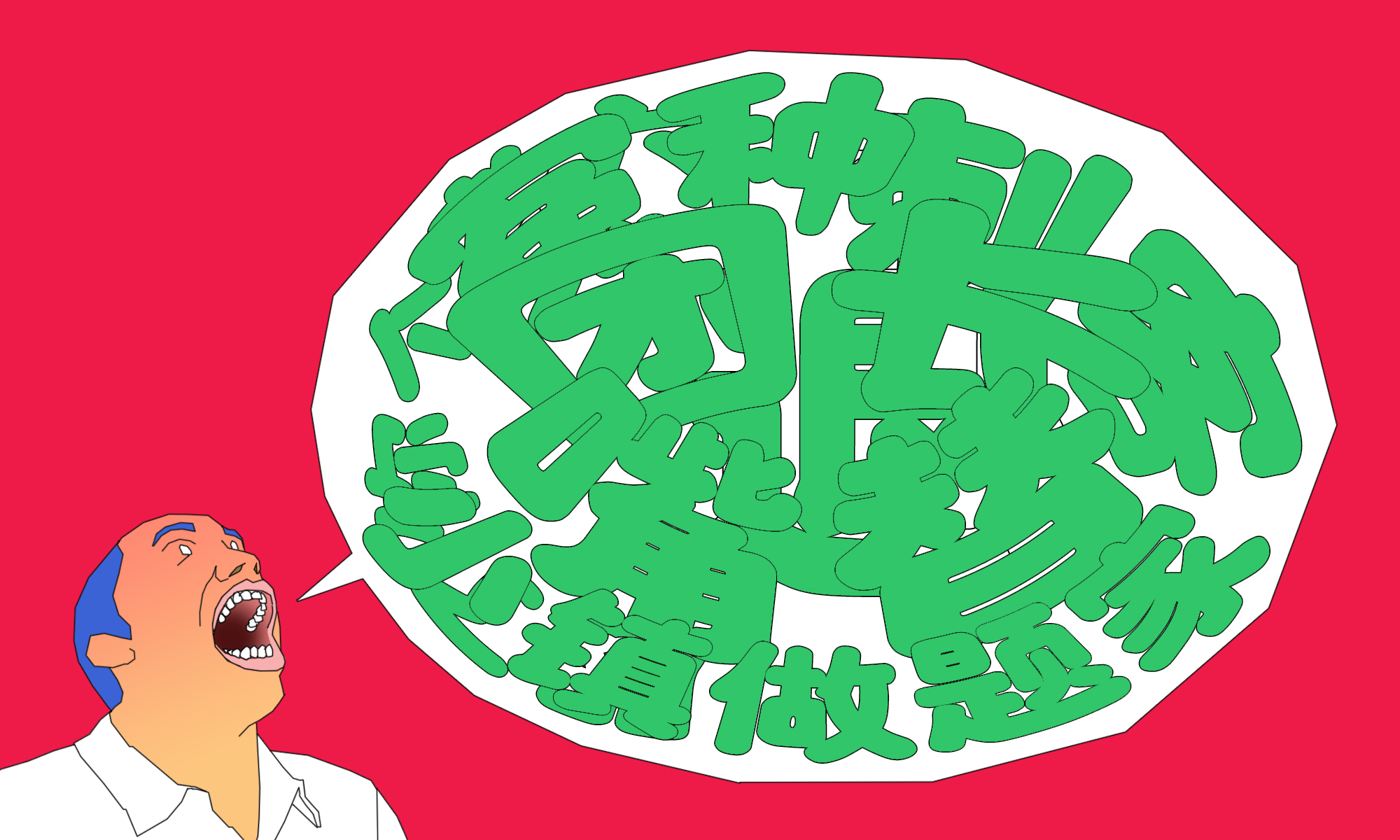
This article originally appeared on Andrew Methven’s Slow Chinese 每周漫闻 newsletter and is republished here with permission and light editing.
The Chinese language is unique in how it absorbs and repurposes content and ideas. This is especially true for internet language, or 网络用语 wǎngluò yòngyǔ.
Internet slang, or buzzwords are known as “hot terms” (热词 rè cí), or 梗 gěng in Chinese. A 梗 gěng is:
A joke, implied meaning, or word with specific, allusive, or ironic connotations.
笑点、伏笔,或是有特别指涉含意或讽刺意涵的东西
A 梗 gěng could be any word, phrase, meme or video that becomes a viral or “hot” term on social media sites and the broader internet. The word 梗 gěng is a misnomer. The correct character is 哏 gén. The “incorrect” pronunciation began in Taiwan’s entertainment world years ago and has since stuck and become widely used.
Every year, new expressions which started out as 梗 gěng on the internet subconsciously infiltrate modern daily language.
China news, weekly.
Sign up for The China Project’s weekly newsletter, our free roundup of the most important China stories.
In 2022, hundreds of new words and phrases have come into use, while some previous “hot” terms have fallen away (such as YYDS).
Earlier this month, as an annual tradition, Language and Character Weekly (语言文字周报) published a top ten list of Chinese internet slangs and buzzwords from 2022. Another publication, Word Media (字媒体 zì méitǐ), a Wechat-based blog analyzing language trends in China, collated a longer list of 100 hot internet words and phrases of 2022.
So in this special issue of Slow Chinese, we’ve compiled a list of 25 top internet words from 2022, which includes the top 10 words published by Language and Character Weekly and another 15 words from the longer list.
It’s a fascinating (ok, and a very nerdy) journey into how modern Chinese language evolves, reflects societal changes, influences how people express themselves, and think and talk about the world around them.
The 梗 gěng in this list began life in the most unexpected places:
- American movies, computer games, and pop culture, the English language more broadly, Chinglish variations of it, and Chinese dialects and regional languages;
- Movies, music, TV shows, documentaries, and novels from Hong Kong, Taiwan as well as the Mainland;
- Food, festivals, marketing campaigns, and sports;
- Original content and comments on Douyin, Weibo, and other social media platforms.
Enjoy!
![]()
The top 10 of 2022
This is a list of China’s top 10 internet buzzwords according to Language and Character Weekly.
1. 栓Q shuān q
thank you (sarcastic)
> 我真的栓Q – I’m so grateful. Thank you [not].
- Background: From a Douyin blogger, Liú Tāo 刘涛, a tour guide from Guangxi, who in a video says “thank you” in heavily accented English. His pronunciation sounds more like the Chinese character, shuān 栓, with the English letter “Q.” Online, it’s morphed into a way to sarcastically say “thank you (but not),” expressing annoyance.
- Related: Other phrases with the same sarcastic tone:
- 我真的会谢 wǒ zhēn de huì xiè – I really thank you so very much (NOT)
- 我真的会蟹 wǒ zhēn de huì xiè – I really crab you (crab is same sound as thank you)
- 听我说谢谢你 tīng wǒ shuō xiè xiè nǐ – I say: thank you (not), which is the title of a song by Lǐ Xīnróng 李昕融
2. PUA
to be deceived or brainwashed
> PUA自己你是高手 – You are a master at deceiving yourself [that everything’s ok]
- Background: PUA is from the American English phrase “pick-up artist.” In Chinese internet slang, the acronym’s meaning is much broader: to be “brainwashed” or “deceived.” It’s used in the context of relationships, family, or work, with people often “PUA-ing” themselves. We discussed this in 3 December newsletter.
- Related: Other acronyms used to mean “deceived” or “brainwashed,” normally in the passive voice (被 bèi) include:
- CPU – “central processing unit” = to be brainwashed. A Chinese actress mistakenly said CPU instead of PUA in an interview. Netizens liked it so it stuck.
- ICU – “intensive care unit” = overworked to death, a reference to China’s 996 work culture.
- KTV = “to be fired” (被开除了 bèi kāi chú le). It’s a nod to how live-streamer, Lǐ Gàn 李赣, invites his co-workers to KTV before firing them.
- PPT – “powerpoint” = pointlessly working (on endless powerpoint presentations).
3. 冤种 yuān zhǒng
someone who is taken advantage of
> 可那时的我,却不知道自己早已踏上了“冤种”之路 – At that time I did not realize I was already on my way to losing all my money.
- Background: Originally from a north eastern dialect, this phrase is now mainstream, meaning someone who’s lost out because of their own stupidity or innocence. We last discussed it in 26 July newsletter. It could also be translated as “unlucky fool.”
- Related:
- 大冤种 dà yuān zhǒng – lose out in a big way, “big loser”
- 职场大冤种 zhí chǎng dà yuān zhǒng – someone who is taken advantage of in the workplace
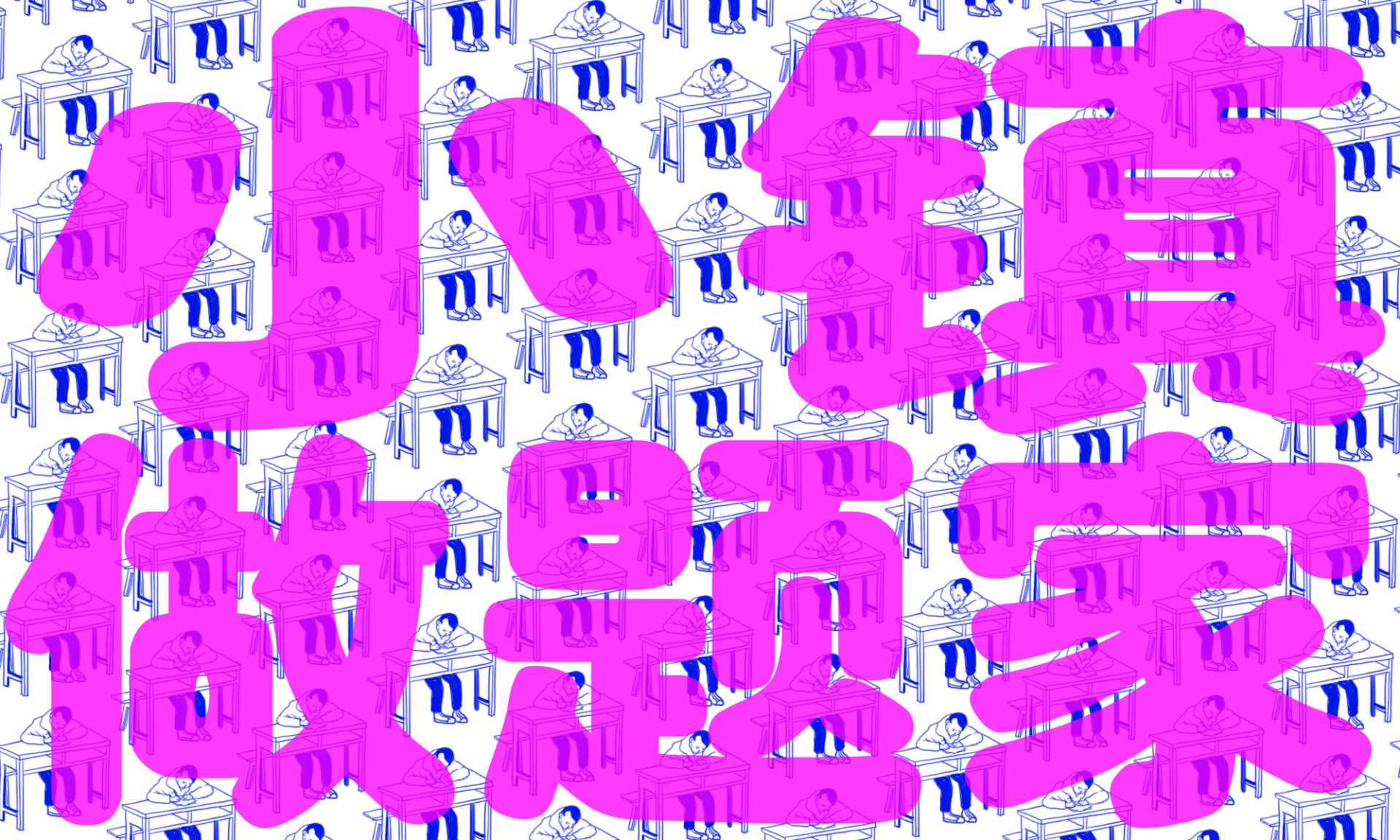
4. 小镇做题家 xiǎo zhèn zuò tí jiā
small town test taker
> 看了舆论才知道,原来我们这种努力学习,以求考上更好的学校,获得更好生活的人,叫做”小镇做题家” – After reading the comments, I realized that people like us who work hard in order to get into a good university and have a better life are known as “small town test takers.”
- Background: A “small town test taker” is someone from the countryside who’s good at taking exams, getting into top universities, but lacks life experience. In July, Chinese pop star Yìyáng Qiānxǐ 易烊千玺 landed a cushy job at the National Theatre of China. An article in China Newsweek suggested he was more talented and better qualified than “small town test takers,” so he deserved the role and the perks that came with it. Since then, the phrase has taken on a new meaning: the system is rigged against people who don’t have money, fame or network. We discussed this in 23 July newsletter.
- Related:
- 985计划 jiǔ bā wǔ jìhuà – Project 985 (985工程 – jiǔ bā wǔ gōngchéng) was a programme to expand China’s elite universities.
- 211高校 èr yāo yāo gāoxiào – A plan to expand comprehensive universities and colleges initiated in 1995 to raise research standards of universities. It has since been abolished, but the name has stuck, meaning “top universities” in China.
5. 团长 tuán zhǎng
regimental commander; leader; pandemic group-buy leaders
> 那一代催生出的“团长”大多是社区周边临街的夫妻杂货店,他们的任务是负责拉群发广告,然后把街边店作为团购自提点 – Most of the “group leaders” from that time were mom and pop grocery store oweners in the community. Their task was to publish advertisements in Wechat groups, and then use the street stores as self-collection points for group buying.
- Background: Originally a military term, it’s also an informal way to say “boss” or “group leader.” During pandemic lockdowns shops were closed. Some people in local communities organised group buying (团购 tuán gòu) as a solution to help secure products for their neighbours. They became affectionately known as 团长 tuán zhǎng, “group buying leaders.”
- Related:
- 平民英雄 píngmín yīngxióng – ordinary heroes
6. 退!退!退!tuì tuì tuì
retreat! back off; be gone!
> 疫情要“退退退”,坏人也要“退退退”,霉运更要“退退退” – Pandemic: Retreat! Retreat! Retreat! Bad people: Retreat! Retreat! Retreat! Bad luck: Retreat! Retreat! Retreat!
- Background: The phrase stemmed from a video clip on Douyin that went viral in May this year. It shows an intense altercation between a man who wanted to park his car, and a stall owner who was using the space to sell her wares. She wards him off, yelling repeatedly the word “Retreat!” with actions reminiscent of exorcising evil spirits. In recent weeks the meme has become popular among Douyin users who hope for exorcising of the virus from China. Read more in last week’s Phrase of the Week.
7. 嘴替 zuǐ tì
mouth substitute
> 互联网嘴替,就是在互联网上,替我们把心里话说出来的网友们,堪称神仙网友 – Internet mouth substitutes are internet users who voice what is on our minds. They are the best online friends you can ask for.
- Background: A “mouth substitute” is a person who articulates what netizens want to say but can’t because they’re worried about getting it wrong, caught out by censors, or not expressing themselves well. “Mouth substitutes,” however, communicate eloquently their complaints for them; they have the courage to speak out and express the concerns of the many.
- Related:
- 互联网嘴替 hùliánwǎng zuǐ tì – Internet mouth substitute
8. 一种很新的东西 yī zhǒng hěn xīn de dōngxī
a new type of thing; no idea what you mean
> 你在玩一种很新的东西 – This is too post-modern. (= I have no idea what you are trying say/do.)
- Background: The phrase originated from a viral comment on Douyin earlier in the year about a song that was too busy and difficult to understand. As a meme and internet slang, it’s a sarcastic criticism expressing confusion when things are overly complicated.
9. 服了你个老六 fú le nǐ ge lǎo liù
a surprise attack
> 这个老六我真的服了 – I can’t believe you did that!
- Background: The phrase was first used by players of Counter Strike: Global Offensive, a video game with five players on each team. Teams can cheat by adding a sixth player in hiding, waiting for the opportune moment to launch a surprise attack. In internet language, it’s levelled at someone who has won unfairly, or done something underhanded.
- Related:
- 老六 lǎo liù – a shorter version of the same phrase, the “old six” is the person who does something unexpected.
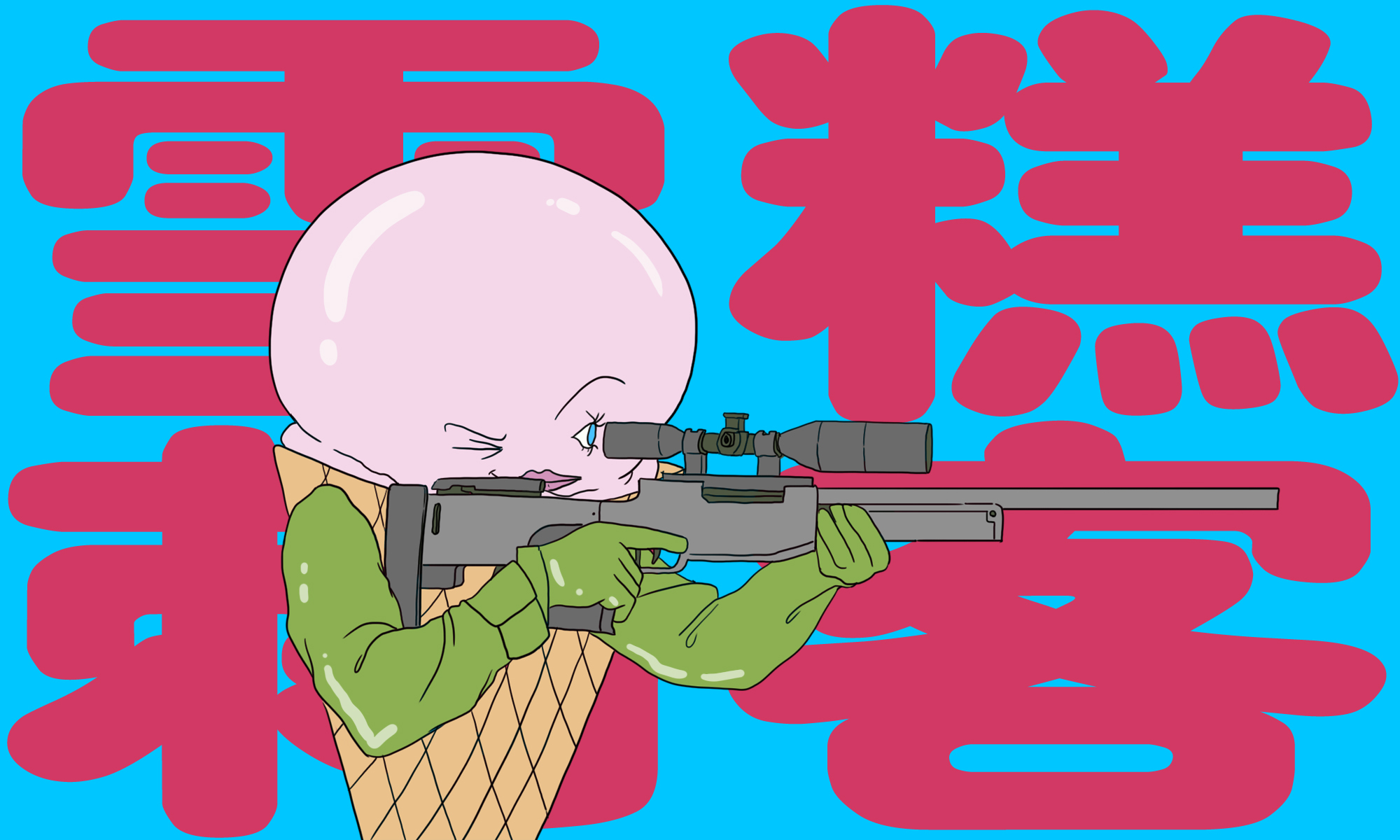
10. 刺客 cìkè
assassin
> “雪糕刺客”也随即在各大社交平台被网友热议 – “Ice-cream assassins” have been hotly discussed by netizens on all major platforms.
- Background: 刺客 cìkè means “assassin.” The phrase, “ice-cream assassin,” became popular in July this year as expensive high-end ice-creams priced at over 60 yuan ($8.6) were sold in the same freezers as cheaper ones. As a result, many consumers were caught off guard when paying for their frozen treats, or in other words, having their wallets “assassinated.” It was explained in a Phrase of the Week column in July.
- Related:
- 机票刺客 jīpiào cìkè – flight ticket assassins
- 演出刺客 yǎnchū cìkè – show assassins
![]()
Other important phrases of 2022
Here is a selection of other internet phrases and words from this year selected from the top 100 internet buzzwords by 字媒体, divided into three categories:
- Life in China
- From China’s entertainment world
- Top memes and phrases from Douyin
![]()
Life in China
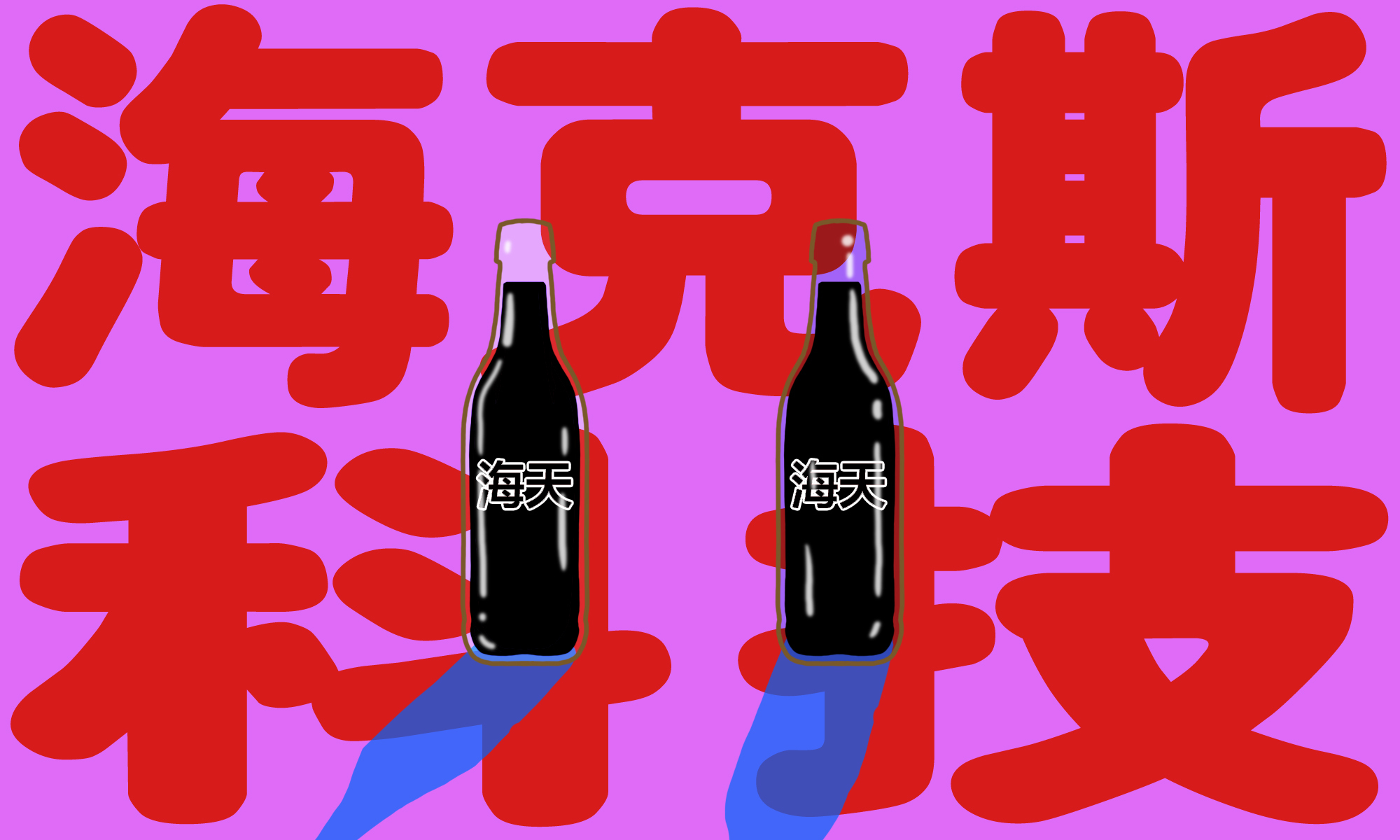
11. 科技与狠活 kējì yǔ hěn huó
technology and filthy work
>“科技与狠活”一词火了起来,成了海天味业及其他工业食品的标签 – “Technology and filthy work,” a term trending on social media, has become a negative label for Haitian and other food products.
- Background: “Technology and filthy work” is a euphemism for food additives. In October this year a Douyin blogger exposed China’s largest soy sauce brand for having one recipe for international markets, and another for Chinese customers. The product for Chinese consumption was packed full of preservatives. We discussed this in 15 October newsletter.
- Related:
- 海克斯科技 hǎi kè sī kējì – Hex technology
12. 二舅 èr jiù
second uncle; an inspirational person who has suffered hardship
> 二舅治好了我的精神内耗 – My second uncle has cured my mental anxieties.
- Background: “Second uncle” 二舅 èr jiù was the star of a 10-minute film portraying the life of a vlogger’s disabled yet resilient and resourceful uncle. “Second uncle” can now mean anyone, usually disabled, who has overcome adversity and succeeded. We explored this story in depth in the 6 August newsletter.
- Related:
- 精神内耗 jīngshén nèi hào – mental anxieties; anxious state of mind
13. 天选打工人 tiān xuǎn dǎ gōng rén
the chosen workers
> 最近几天,“天选打工人”象象上班好像玩狼人杀,都有“阳”同事“消失” – In recent days, going to work for the “blessed” worker Xiang Xiang, who hasn’t got COVID, is like playing Werewolf – her co-workers who tested positive are gradually disappearing.
- Background: This zero-COVID era phrase became popular at the end of the Labour Day holiday. On returning to their offices, employees who were able to get to their offices, and not be quarantined, were described as “blessed workers.” Since the zero-COVID policy was implemented, the phrase now means people who haven’t yet tested positive.
- Related:
- 晒阳 shài yáng – share your positive test result on social media
- 神雕侠侣 shén diāo xiá lǚ – The Legend of the Condor Heroes, a wuxia novel by Luis Cha (金庸 Jīn Yōng.) Names of three characters from the novel, Yáng Guò 杨过, Yáng Kāng 杨康, and Wáng Chóngyáng 王重阳, have taken on new meaning as they sound the same as having contracted, recovered from, or had COVID again.
- 杨过 Yáng Guò – someone who has got COVID (阳过)
- 杨康 Yáng Kāng – someone who has recovered (阳康)
- 王重阳 Wáng Chóngyáng – someone who has got Covid more than one time (重阳)
14. 00后整顿职场 líng líng hòu zhěngdùn zhíchǎng
Gen Z rights the wrongs of the workplace
> 只有我们00后在整顿职场。工作一年仲裁4家公司,告倒闭两家,我就是我,不一样的烟火 – Only we post-00s are righting the wrongs of the workplace. After working for one year, I have taken four companies to arbitration court, and two shut down as a result. I am who I am.
- Background: University graduates born after the year 2000 have started to enter the workforce in China. They have a different idea about what is acceptable when it comes to working overtime, the drinking culture, and other unhealthy aspects of the Chinese workplace, and what to do about it. This phrase was a trending topic on social media in the summer with young people sharing stories of how they “rectified” the company culture of their employers.
- Related:
- “I am what I am; I am fireworks of a different color” (我就是我,不一样的烟火 wǒ jiù shì wǒ, búyīyàng de yānhuǒ) is a famous line from Leslie Cheung’s (张国荣 Zhāng Guóróng) song, Me (我 wǒ), often quoted to express one’s individuality.
15. 疯狂星期四 fēngkuáng xīng qí sì
Crazy Thursdays
> “疯四文学”这场网络狂欢最重要的意义,莫过于让肯德基造节成功,使无数人每到星期四这一天,就想起了肯德基疯狂星期四的存在 – KFC’s online extravaganza “Crazy Thursdays” has become a huge success for the brand in China. Now when it’s Thursday people automatically think of KFC.
- Background: KFC’s online marketing campaign “Crazy Thursdays” was so successful that it became an internet slang phrase in its own right. Every Thursday they offer discounts in restaurants across China, encouraging customers to share images of their bargains online. It now means to go out and have a great time on Thursdays – usually shopping, eating or drinking. We touched on this in the 24 September newsletter.
16. 炫 xuàn
eat; stuff yourself
> 炫我嘴里 – Eat it in my mouth
- Background: 炫 xuàn means “eat” or “stuff yourself full” in a northern Chinese dialect. It’s crossed over into Mandarin after becoming a trending topic at Chinese New Year, with people saying they were looking forward to stuffing their faces during the holidays.
- Related:
- 炫砂糖橘 xuàn shā táng jú – stuffing myself with tangerines (a popular meme around Chinese new year)
- 炫饭 xuàn fàn – stuffing myself
- 炫一口 xuàn yī kǒu – eat a big mouth full
17. 一整个x住 yī zhěng gè […] zhù
to be totally [x]d
> 我一整个爱住了 – I’m totally in love.
- Background: A combination of two Chinese grammar structures: “一整个…,” and “…住.” Together, they emphasize an emotion. Its early use was to express positive emotions such as: “I love you so much” (一整个爱住你 yī zhěng gè ài zhù nǐ ). But further iterations express confusion: “I’m totally speechless” (一整个无语住 yī zhěng gè wú yǔ zhù).
- Related:
- 一整个愣住 yī zhěng gè lèng zhù – I’m totally confused
![]()
Entertainment
18. 我的眼睛就是尺 wǒ de yǎnjīng jiùshì chǐ
my eyes are my measure; I can see it with my own eyes
> 肯定赢了,首金诞生了!我的眼睛就是尺,不用看回放了!- She’s definitely won! It’s our first gold! My eyes are sharp, so there’s no need to watch the replay!
- Background: When the final athlete on the Chinese short track speed skating mixed relay team crossed the finish line, bringing home the first gold medal for China at the Beijing Winter Olympics, commentator and former olympian Wáng Méng 王蒙 said the phrase, which quickly became a viral meme and online hit.
- Related: 冰墩墩 bīng dūn dūn – Bing Dwen Dwen was the official mascot of the Beijing Winter Olympics. What now seems like a lifetime ago, the mascot was massively popular in China and was the hottest product at that time with many merchants selling out.
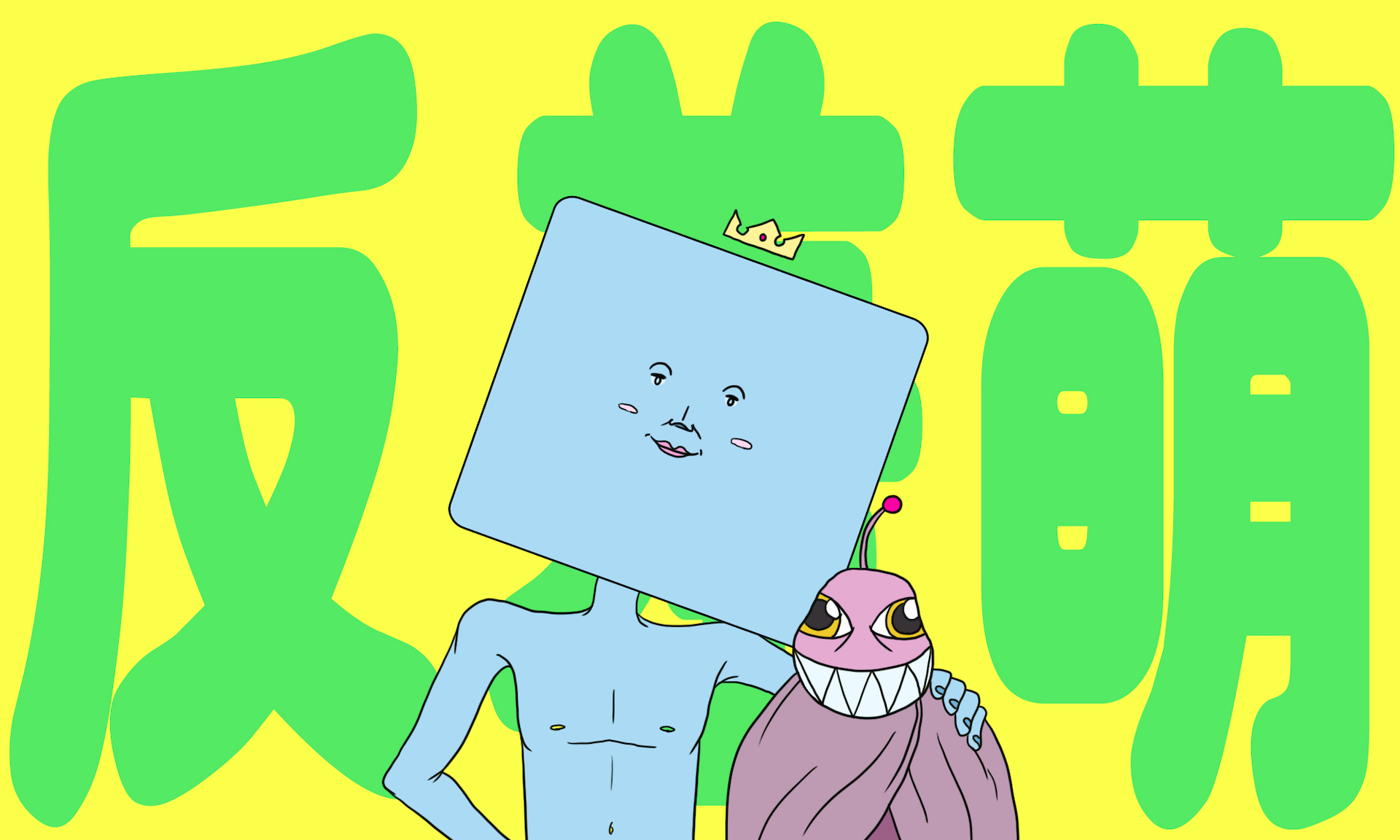
19. 刘耕宏女孩儿 Liú Gēnghóng nǚhái’r
Liu Genghong girls
> 如果你在每天晚上打开朋友圈,至少一半的女性好友都变身了“刘畊宏女孩” – If you check your social media feed every evening, you’ll see that at least half of your female friends have become “Liu Genghong girls.”
- Background: A little known Taiwanese actor Liú Gēnghóng 刘畊宏 became an internet sensation during the Shanghai lockdown in April, when he livestreamed 90-minute work-out sessions from his apartment in Shanghai with his wife every weekday evening and Saturday mornings on Douyin. We discussed this in the 30 April newsletter.
- Related:
- 反差萌 fǎn chā méng – cute contrast
20. 怎么能不算呢 zěn me néng bù suàn ne
how can it not be?
> 你觉得自己算是天赋型演员吗?一般来说遇到这样的问题就算是影帝也要谦虚一下,结果刘浩存说:嗯…怎么不算呢 – The journalist asked Liu Haocun if she felt she had a natural talent for acting. Generally, when asked this question even an Oscar winner would normally respond modestly, but instead she asked: “Well, how can I not have?”
- Background: In an interview on CCTV in March, Chinese actress Liú Hàocún 刘浩存 was asked if she thought she had a gift for acting. Rather than respond with the usual Chinese modesty, she instead asked the question: “Why would I not have?” It became a viral meme, which is often used to criticize someone who is annoyingly overconfident.
21. 那你报警吧 nà nǐ bào jǐng ba
well, call the police then
> 当网友们不想跟别人争论时就说:那怎么办,要不你报警吧 – When netizens don’t want to argue with each other anymore, they say: “So, what are you going to do? Why don’t you call the police?’”
- Background: The phrase First appeared in an online spat between fans of two members of a girl group, where fans of one member used this one liner after she won a competition, which apparently left fans of the “loser” unable to find a good comeback. It’s now a lazy phrase to disagree with someone while not providing any reasoning, or to put a stop to conversations with frothing angry social media users.
- Related:
- 摆烂 bǎi làn – let it rot, another popular term from 2022. “Call the police then” is described as a new type of “let it rot.”
22. 人生无常大肠包小肠 rén shēng wú cháng dà cháng bāo xiǎo cháng
Life is impermanent, the large intestine wraps the small intestine; life is short
> 人生无常大肠包小肠的意思是:人生如戏,今天相见,明天挂墙 – The sentence, ‘”ife is impermanent” means: life is like a play, maybe you’ll be here today and gone tomorrow.
- Background: From the Chinese (Taiwan) subtitles of the American movie The SpongeBob Movie: Sponge Out of Water (海绵宝宝大电影:海绵出水). The final line in the film in English is: “Well, it was fun while it lasted.” The Chinese subtitles translated it as “Life is impermanent, the large intestine wraps the small intestine.” This Chinglish phrase has become popular with netizens to mean: “You never know what will happen next.”
![]()
Douyin memes and viral phrases
Throughout 2022, many internet slang words and memes started life in a Douyin video or in a comment on the app. Here are three more that made an impression on wider society in China.
23. 芭比Q了 bā bī q le
barbeque; finished
> 完了,你芭比Q了 – Oh dear, you’re finished.
- Background: 芭比Q了sounds the same as “barbecue” in English. It means “you’re finished” in Chinese (same as 完蛋了 wán dàn le). It’s originally from a 2021 song called “完了完了完了 芭比Q了” by Douyin blogger Dèng Jiāzhōng 邓家忠.
24. 浅尝一下吧 qiǎn cháng yī xià ba
shallow try little; try it out
> 出自抖音的一些搞笑视频,原句是:浅尝一下吧 – It came from some funny videos from Douyin. The original sentence is: Let’s have a taste.
- Background: First coined by Douyin blogger Guō Yǔ 郭语, it’s now a popular phrase on the app; a jokey way to persuade someone to try something.
- Related:
- 浅试一下 qiǎn shì yī xià – let’s give it a try
- 浅听一下 qiǎn tīng yī xià – let’s have a listen
25. 我是云南的 wǒ shì yúnnán de
I’m from Yunnan
> “我是云南的”是一首洗脑的喊麦歌曲,由于该歌曲歌词非常洗脑上头,再加上喊麦小伙一头飘逸的长发随节奏舞动,给人留下非常深的印象 – “I’m from Yunnan” is the name of a song which promotes the province. The lyrics were really addictive, and the singer was also quite memorable because his floppy hair seems to dance with the music.
- Background: A song written and performed by a member of the Lisu ethnic minority (傈僳族 lìsù zú) in Nujiang, Yunnan, became an internet sensation in May. The 30-second clip, with its addictive tune, entertaining singer, and funny lyrics, led to many people to agree: the first time you listen to it, it’s terrible; the second time, it’s not bad; the third time, it’s actually quite good; the fourth time: I’m from Yunnan too! Internet users have created new songs about how to say different words in different dialects and sectors, such as Bitcoin lingo.
- You can listen and try to create your own version! Here is the original video.


